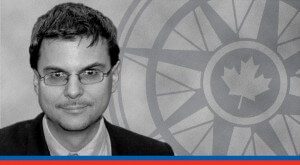 The Macdonald-Laurier Institute is highlighting its authors’ work on some of the major public policy issues going into this year’s federal election campaign. Today, MLI Senior Fellow Christian Leuprecht examines counterterrorism
The Macdonald-Laurier Institute is highlighting its authors’ work on some of the major public policy issues going into this year’s federal election campaign. Today, MLI Senior Fellow Christian Leuprecht examines counterterrorism
OTTAWA, July 31, 2015 – Domestic policy issues such as the economy tend to eat up the headlines during federal elections, pushing foreign policy to the backburner.
But with Canada facing serious threats both at home and abroad, Canadians should not forget about counterterrorism during the upcoming campaign.
Macdonald-Laurier Institute Senior Fellow Christian Leuprecht examined in a recent Straight Talk Q&A how the federal election campaign will shape Canada’s efforts abroad.
It’s important for Canada’s next government to be clear about the approach it will take to countering threats to Canada’s security, says Leuprecht – particularly with Canada sending Special Forces to the Middle East alongside the United States and other allies.
“I think there’s nothing worse, especially for our allies, than uncertainty”, says Leuprecht in the Q&A. “The last thing they’d want to see is Canada haphazardly withdrawing from this type of coalition”.
The new government will also need to shape policies that account for a world in which Canada’s role is changing, says Leuprecht.
Gone are the days of major, years-long commitments such as the mission that recently concluded in Afghanistan.
Instead Canada will need to embrace more limited engagements, like the one it’s currently fighting against Islamic State with the United States and other allies.
“What we are more likely to see is precisely the sort of missions that we’ve seen with respect to Libya or Iraq or Ukraine or the Baltic States: Canada making sort of limited-term commitments in limited engagements to achieve very narrowly defined objectives”, he says.
The rise to prominence of Islamic State (known variously as ISIS and ISIL) in Iraq and Syria also presents a unique threat, says Leuprecht.
Canada and other countries can contain Islamic State, but they can’t indefinitely contain the grievances upon which they are capitalizing.
Support for Islamic State from disaffected minorities is a political problem that requires a political compromise. The problem, says Leuprecht, is that “political compromises in the Middle East seem to be extremely hard to forge because it’s a winner-take-all kind of politics”.
“So, the future here really hinges on the extent to which the protagonists can forge a political consensus”, he adds.
Leuprecht also examined the issue of homegrown terrorism in his commentary, “Facing The Challenge Of Violent Extremism in Canada”.
***
Christian Leuprecht is Associate Dean of the Faculty of Arts and Associate Professor in the Department of Political Science and Economics at the Royal Military College of Canada, and cross-appointed to the Department of Political Studies and the School of Policy Studies at Queen’s University. He is a Senior Fellow with the Macdonald-Laurier Institute
The Macdonald-Laurier Institute is the only non-partisan, independent national public policy think tank in Ottawa focusing on the full range of issues that fall under the jurisdiction of the federal government. Join us in 2015 as we celebrate our 5th anniversary.
For more information, please contact Mark Brownlee, communications manager, at 613-482-8327 x105 or email at mark.brownlee@macdonaldlaurier.ca.




